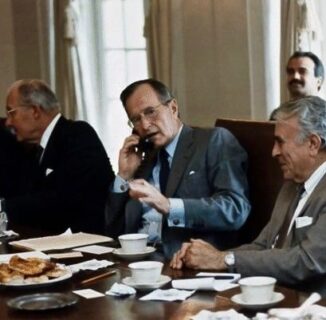
Interview: Prof. Jeremy Bailey, author of Thomas Jefferson and Executive Power
We talked with Professor Jeremy Bailey about a MAHG elective course, The American Presidency II: Johnson to the Present, which begins January 12. Professor Bailey teaches in the Department of Political Science and the Honors College at the University of Houston. He is the author of an acclaimed analysis of Jefferson’s role in defining the presidency, Thomas Jefferson and Executive Power (Cambridge University Press, 2007).
Why take this course? What can students learn from a survey of the presidency that they do not learn as well from courses on historical periods?
You get to isolate one institution and one concept and follow it through time. The Presidency, and how it functions as an institution, is such an important variable within various historical periods. You can learn a lot about LBJ by studying the sixties, but you won’t understand as much without studying the changes in the presidency between FDR and LBJ.
Also, it’s easy to reduce the presidency to biography, and end up relying on amateur psychological assessments to understand why Presidents did what they did. In fact, however, the only people a president is really comparable to are other presidents.
You’ve written on the presidency yourself, notably in Thomas Jefferson and Executive Power. Do you often work on the presidency in your research? What are your current research interests?
The presidency—and changes to the presidency over time—is one of my two or three research interests. I study executive power and what it is: how much of it is a legal puzzle, and how much is a political phenomenon calling on the partisan strengths of the person holding the office?
There are three different conversations I’m involved in on the presidency. In addition to the above, I’m making a particular inquiry into who has the power to fire executive officials. I co-authored a book, The Removal Power, on this with David Alvis (also a MAHG teacher) and Flagg Taylor (married to Natalie Taylor, another teacher in the MAHG program). We met at Ashland a couple of times to work on aspects of the book. We like to call the removal power “the most important controversy you’ve never heard of.” The book will be published around Labor Day in 2013.
A third interest is in presidential proclamations. With a colleague here, I am working to compile the only complete set of presidential proclamations. We want to collect and code them so that members of the general public who need to know will be able to find them. If you were trying to find a list of every executive veto that’s ever been issued, you could easily do it. But proclamations are an area of history that has been overlooked, perhaps because the assumption is that most presidential proclamations are merely ceremonial. Nevertheless, before the 1930s, presidential proclamations carried a lot of policy significance. It is interesting to study the extent to which presidents have used proclamations to make policy unilaterally. Sometimes proclamations are used to alert the public to a power the president is using that is indisputably his; sometimes the power exercised in the proclamation has been delegated by Congress; sometimes it has been delegated by Congress but used in a way not intended by Congress.
A proclamation is distinguished from an executive order in that it goes to people outside of government, to the citizens. For example, Truman could desegregate the military through an executive order, but Washington issued the neutrality proclamation (1793) to announce to Americans at large that the country was at peace.
How important is the presidency in American government overall? Has it gained in importance since the Founding?
It has absolutely gained in importance. We now rely on the President to provide a budget for the entire government. We also assume that when we elect a president we are electing the leader of the free world. This means that contemporary presidents hold a power via the war power that far exceeds what early Americans would have expected of the presidency. For example, using the war power, George Bush sent about 500,000 soldiers to Iraq.
In our political discussions at present, are we in danger of overestimating the importance of the executive?
The budget standoff shows that on the one hand, with the growth of attention and focus on the presidency, we now have an expectations gap in domestic policy. Presidents can only do so much. It’s very hard for the President to get the policy he wants. And in foreign affairs, there are new constraints: NGOs, the international legal community—that limit the president’s power. Bush and Obama haven’t had the same flexibility that FDR had.
What will prove to be most historically important about the election we just went through?
The first thing that comes to mind is that now we have to have a national election every couple of years just to achieve one policy! Another question we’re asking about the election, of course, is whether it is a sign that the country is aligning with the Democratic Party.
You taught the first half of the course on the presidency in the fall online program, and you’ve taught both surveys of the presidency, the early and later, in the summer program. How does the online course differ from the summer course?
The summer course allows for a different dynamic. You have one very intense week. But there is a lot that cannot happen in that week. The online course, with its more traditional pacing, allows time for an idea to be introduced one week and to percolate for a couple of weeks after that. Time always brings out the best questions. So the summer courses offer intensity, while the online courses offer time for reflection.



